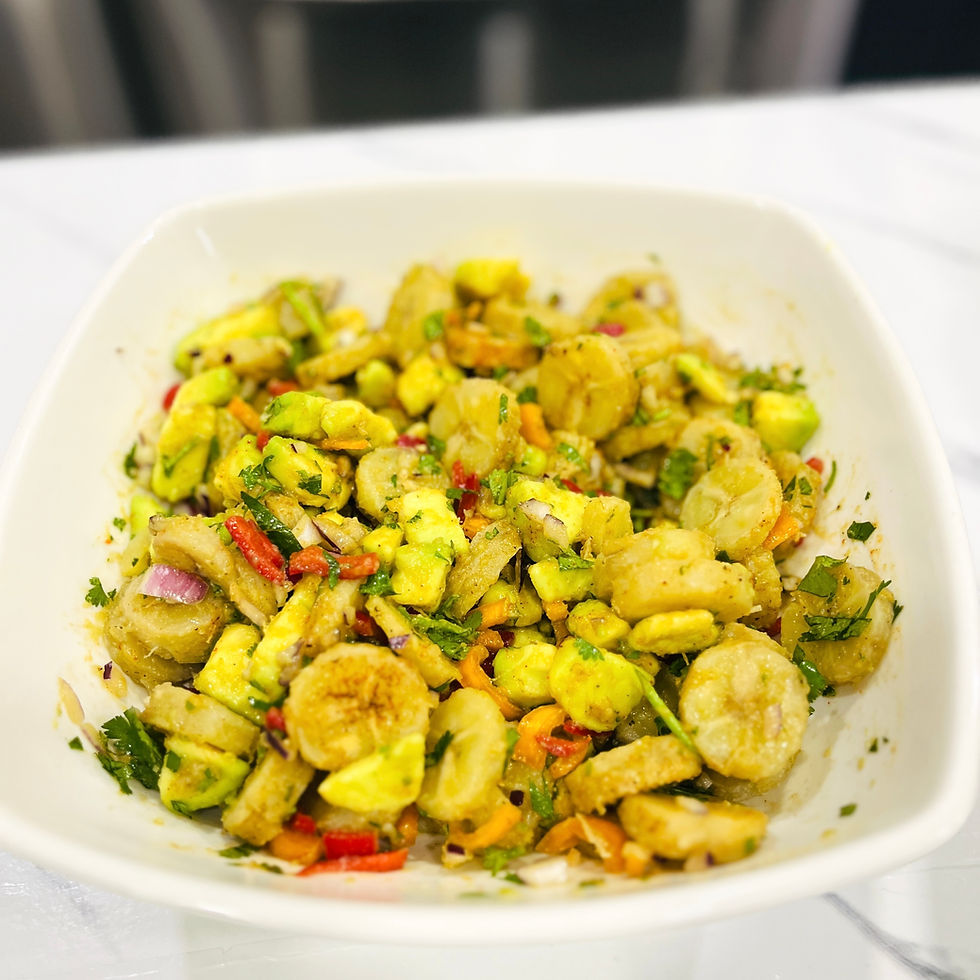Zero-Waste Cooking: Caribbean-Inspired Tips to Reduce Food Waste and Save Money!
- V Blackmoore

- Feb 28
- 2 min read

In the Caribbean, we’ve always known how to make the most of every ingredient in our kitchen. From using every part of fresh produce to repurposing leftovers into delicious meals, waste is simply not an option! Embracing zero-waste cooking isn’t just good for the environment—it also helps you save money, reduce food waste, and get creative in the kitchen.
What is Zero-Waste Cooking?
Zero-waste cooking is all about using every part of your ingredients, minimizing waste, and finding new ways to repurpose food scraps. Instead of tossing out fruit peels, veggie scraps, or leftover rice, we transform them into flavorful broths, teas, and other delicious creations.
Caribbean Zero-Waste Cooking Tips
Here are some easy ways to start practicing zero-waste cooking, inspired by Caribbean traditions:
1. Use Every Part of Your Produce
Banana Peels: Don’t throw them away! In the Caribbean, banana peels are often used to tenderize meats or even turned into chutneys.
Mango Pits: Boil them to make a refreshing mango-infused tea.
Coconut Husks & Shells: Use the shells as natural serving bowls or repurpose them for charcoal grilling.
Citrus Peels: Dry and blend into a zesty seasoning or use in homemade cleaning solutions.
2. Save Vegetable Scraps for Broths & Seasoning
Caribbean cooking is known for its rich flavors, and homemade broths are a great way to add depth to your dishes while reducing waste.
Keep a container in your freezer for onion skins, carrot tops, herb stems, and garlic peels.
Simmer the scraps with water, bay leaves, thyme, and allspice to create a flavorful stock.
3. Get Creative with Leftovers
Day-Old Rice? Turn it into flavorful Caribbean fried rice with plantains and fresh herbs.
Leftover Stew? Use it as a filling for homemade hand pies or stuffed peppers.
Stale Bread? Transform it into bread pudding or crunchy croutons for soups and salads.
4. Compost What You Can’t Eat
Even with zero-waste efforts, there will still be some unavoidable scraps. Instead of tossing them in the trash, start a small compost bin for nutrient-rich soil that can be used for gardening.

Zero-Waste Caribbean Recipes You’ll Love
1. Mango Seed Tea – A lightly sweet and refreshing tropical tea made by boiling mango pits with cinnamon and cloves.
2. Coconut Rice & Peas – Repurpose leftover coconut flesh into creamy rice with pigeon peas and thyme.
Why Zero-Waste Cooking Matters
🌿 Cuts Down on Food Waste – Millions of pounds of food go to waste every year. You can make a difference by using every part of what you buy.
💰 Saves Money – Stretch your groceries further by repurposing leftovers into new meals.
🌎 Protects the Environment – Less food waste means a smaller carbon footprint and a healthier planet.
Final Thoughts: Let’s Cook Smarter!
Zero-waste cooking isn’t just a trend; it’s a way of life that Caribbean families have practiced for generations. By being mindful of how we use ingredients, we can create flavorful dishes while reducing waste and saving money.
Ready to give zero-waste cooking a try? Share your favorite waste-free cooking tips in the comments!
.png)






Comments